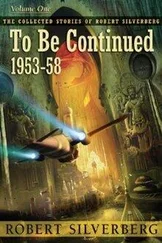Robert Silverberg - Sunrise on Pluto
Здесь есть возможность читать онлайн «Robert Silverberg - Sunrise on Pluto» весь текст электронной книги совершенно бесплатно (целиком полную версию без сокращений). В некоторых случаях можно слушать аудио, скачать через торрент в формате fb2 и присутствует краткое содержание. Год выпуска: 2011, ISBN: 2011, Издательство: Subterranean Press, Жанр: Фантастика и фэнтези, на английском языке. Описание произведения, (предисловие) а так же отзывы посетителей доступны на портале библиотеки ЛибКат.
- Название:Sunrise on Pluto
- Автор:
- Издательство:Subterranean Press
- Жанр:
- Год:2011
- ISBN:978-1-59606-402-7
- Рейтинг книги:3 / 5. Голосов: 1
-
Избранное:Добавить в избранное
- Отзывы:
-
Ваша оценка:
- 60
- 1
- 2
- 3
- 4
- 5
Sunrise on Pluto: краткое содержание, описание и аннотация
Предлагаем к чтению аннотацию, описание, краткое содержание или предисловие (зависит от того, что написал сам автор книги «Sunrise on Pluto»). Если вы не нашли необходимую информацию о книге — напишите в комментариях, мы постараемся отыскать её.
Sunrise on Pluto — читать онлайн бесплатно полную книгу (весь текст) целиком
Ниже представлен текст книги, разбитый по страницам. Система сохранения места последней прочитанной страницы, позволяет с удобством читать онлайн бесплатно книгу «Sunrise on Pluto», без необходимости каждый раз заново искать на чём Вы остановились. Поставьте закладку, и сможете в любой момент перейти на страницу, на которой закончили чтение.
Интервал:
Закладка:
Sunrise on Pluto
by Robert Silverberg
We have waited out the night, and now at last we will go forth onto the frozen face of Pluto. One by one we take our places—Leonides, Sherrard, Gartenmeister, me—and ready ourselves to clamber down the ladder to the icy surface of the outermost of worlds.
Soon we will have an answer to the question that has obsessed us all during this long night.
Night on Pluto is 6.39 Earth-days long, and that night is blacker and colder than anything any of us has ever known. It is a true dark night of the soul, a dismal time made infinitely more terrible by our awareness of the monstrous distance separating us from all that we love. That distance imposes a burden which our spirits can scarcely carry. God knows, the dark side of Luna is a bleak and terrible place, but one never feels so wholly crushed by its bleakness as we have felt here. On Luna one need make only a brief journey to the edge and there is the lovely blue Earth hovering overhead, close, familiar, beckoning. But here stand we on forlorn Pluto, knowing that we are nearly four billion miles from home. No one has ever been so far from home before.
Now at last the fierce interminable night is ending. When we made our touchdown here the night was half spent; we used what remained of the dark hours to carry out our preliminary observations and to prepare for the extravehicular journey. Now, as we make ready to emerge, there comes the first trembling hint of a dawn. The utter and absolute and overwhelming darkness, which has been made all the more intense by the chilly glitter of the stars, is pierced by a strange pale glow. Then a sudden astonishing burst of light enters the sky—the light of a giant star whose cold radiance is hundreds of times as bright as that of the full moon seen from Earth.
It is the sun, our sun, the well of all warmth, the fountain of life. But how sadly its splendor is altered and diminished by those billions of miles! What reaches us here is not the throbbing golden blaze of summer but only a brilliant wintry beacon that sends glittering tracks of dazzling merciless brightness across the stark icefields of Pluto.
We move toward the hatch. No one speaks. The tension is rising and our faces show it.
We are edgy and uneasy, but not because we are about to be the first humans to set foot on this world: that is trivial, entirely unimportant to us, as I think it has always been to those who have carried the great quest outward into space. No, what concerns us is a mystery that no previous explorers of the Solar System have had to confront. Our instruments, during the long Plutonian night, have been recording apparent indications that living creatures, Plutonian life-forms, are moving about out there.
Life-forms? Here, on the coldest and most remote of worlds? It seems absurd. It is absurd. Nowhere in the Solar System has anyone ever found a trace of extraterrestrial life, not on any of the explored planets nor on any of their moons. Unless something unimaginable lurks deep within the impenetrable gaseous mantles of Jupiter or Saturn or Uranus, our own small planet is the sole repository of life in the System, and, for all we know, in the entire universe. But our scanners have picked up the spoor of life here: barely perceptible electromagnetic pulses that indicate something in motion. It is strictly a threshold phenomenon, the most minimal trace-output of energy, the tiniest trickle of exertion. The signal is so faint that Sherrard thinks it is nothing more than an instrumentation error, mere noise in the circuitry. And Gartenmeister wants it to be an error—he fears the existence of extraterrestrial life, so it seems, the way Pascal feared the eternal silence of the infinite heavens. Leonides argues that there is nothing that could produce such distinct vectors of electromagnetic activity except neural interaction, and therefore some sort of living beings must be crawling about on the ice-fields. “No,” I say, “they could be purely mechanical, couldn’t they? Robots left behind by interstellar explorers, say?”
Gartenmeister scowls at me. “Even more absurd,” he says.
No, I think, not more absurd, merely more disturbing. No matter what we discover out there, it is bound to upset deeply held convictions about the unique place of Earth in the cosmos. Who would have thought it, that Pluto, of all places, would harbor life? On the other hand, perhaps Sherrard is right. Perhaps what we have imagined to be life-forms emitting minuscule flickers of electrical energy is in truth nothing more than deceptive Brownian tremors in the atoms that make up our ship’s sensors. Perhaps. Soon we may have an answer.
“Let’s go,” Leonides says.
We swing downward and outward, into the cheerless Plutonian dawn.
The blackness of the sky is tinged with green as the distant sunlight bounces through the faint wispy swirls of methane that are Pluto’s atmosphere. Visible now overhead, hovering ominously close, is the dull menacing bulk of Charon, Pluto’s enormous moon, motionless and immense. Our shadows are weird things, sharp-edged and immensely long. They seem to strain forward as though trying to escape from us. Cold tendrils of sunlight glide unhurriedly toward the jagged icy cliffs in the distance.
Sunrise! Sunrise on Pluto!
How still it is, an alien sunrise. No birds sing, no insects buzz and drone. We four have seen many such sunrises—on Luna, on Mars, on Titan, on Ganymede, on Iapetus: standing with our backs to the rising sun, looking out on a harsh and silent landscape. But none so silent as this, none so harsh.
We fan out across the surface of Pluto, moving lithely, all but floating: Pluto is the lightest of worlds, its mass only a few hundredths that of Earth, and its gravitational grip is less secure than those of some of the larger moons. What do I see? Ice. A joyless methane sea far away, shining faintly by the dull light of dawn. Fangs of black rock. Despair begins to rise in me. To have come billions of miles, merely for the sake of being able to say that this world, too, has been explored—
“Here!” Leonides calls.
He is far in front of us, almost at the terminator line beyond which the sun has not yet reached. He is pointing ahead, into the darkness, stabbing at it with the beam of his light.
“Look! I can see them moving!”
We run toward him, leaping in great bounds, soaring, gliding. Then we stand beside him, following the line of his light, staring in awe and astonishment toward the darkness.
Yes. Yes. We have the answer at last to our question, and the answer is a stunning one. Pluto bears life. Small dome-shaped things are scrabbling over the ice!
They move slowly, unhurriedly, and yet one somehow feels that they are going as fast as possible, that indeed they are racing for cover, pushing their bodies to the limits. And we know what it is that they are struggling to escape; for already the ones closest to us have been overtaken by the advancing light of day, and as the rays touch them they move more slowly, and more slowly yet, and then they fall entirely still, stopping altogether between one moment and the next, like wind-up toys that have run down. Those that are in sunlight now lie stranded on the ice, and those ahead of them are being overtaken, one after another.
We hasten to them, kneel, examine them. None of us says a word. We hardly dare look at one another. The creatures are about the size of large crabs, with thick smooth waxy-textured gray shells that reveal neither eyes nor mouths. They are altogether motionless. I touch one with a trembling hand, nudge it, get no response, nudge it a bit more forcefully. It does not move. I glance at Leonides. He nods, and I tip the creature on its side, which shows us a great many small jointed legs that seem to sprout from the shell surface itself. What a simple creature! A mere armored box!
Читать дальшеИнтервал:
Закладка:
Похожие книги на «Sunrise on Pluto»
Представляем Вашему вниманию похожие книги на «Sunrise on Pluto» списком для выбора. Мы отобрали схожую по названию и смыслу литературу в надежде предоставить читателям больше вариантов отыскать новые, интересные, ещё непрочитанные произведения.
Обсуждение, отзывы о книге «Sunrise on Pluto» и просто собственные мнения читателей. Оставьте ваши комментарии, напишите, что Вы думаете о произведении, его смысле или главных героях. Укажите что конкретно понравилось, а что нет, и почему Вы так считаете.












